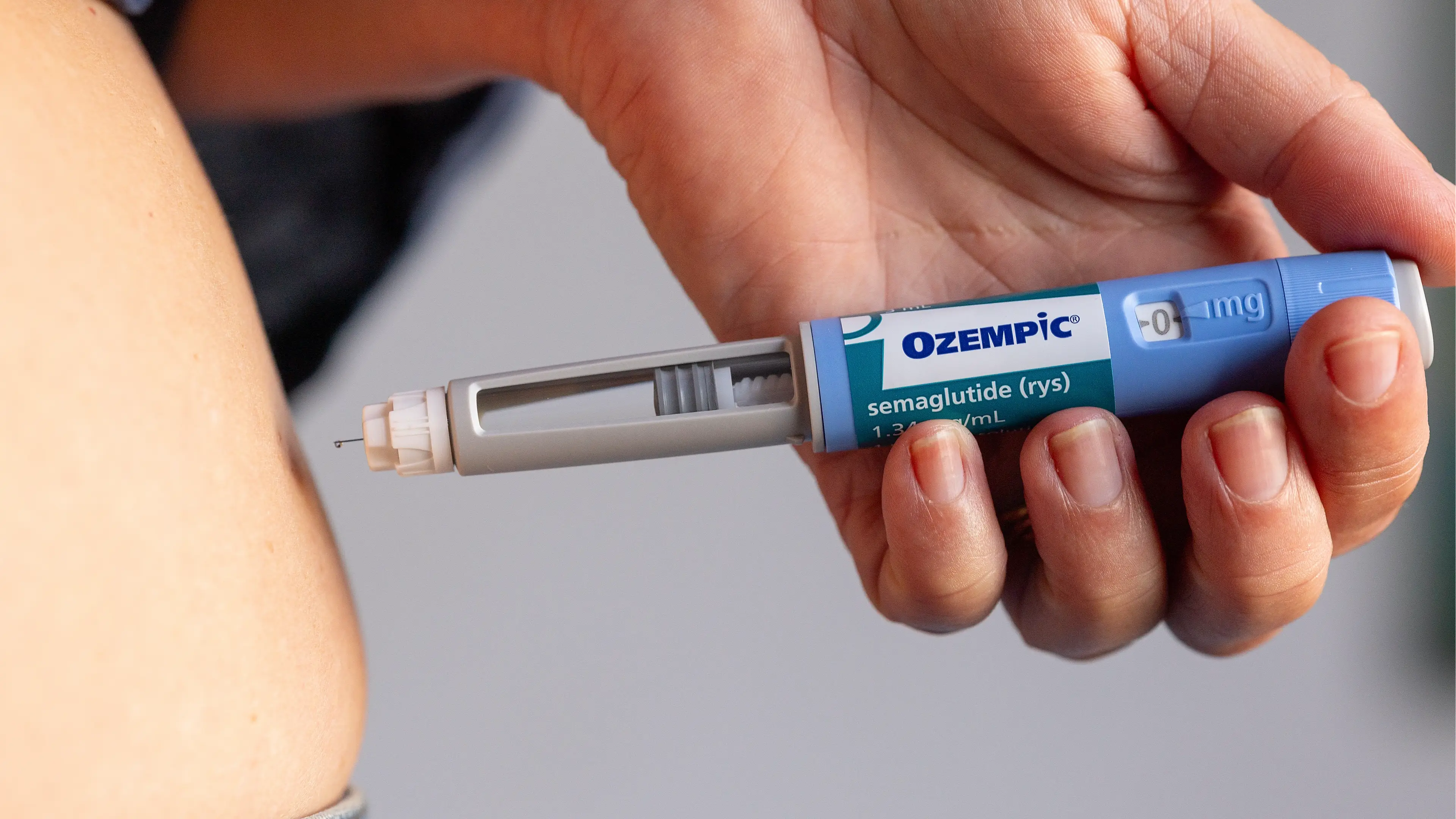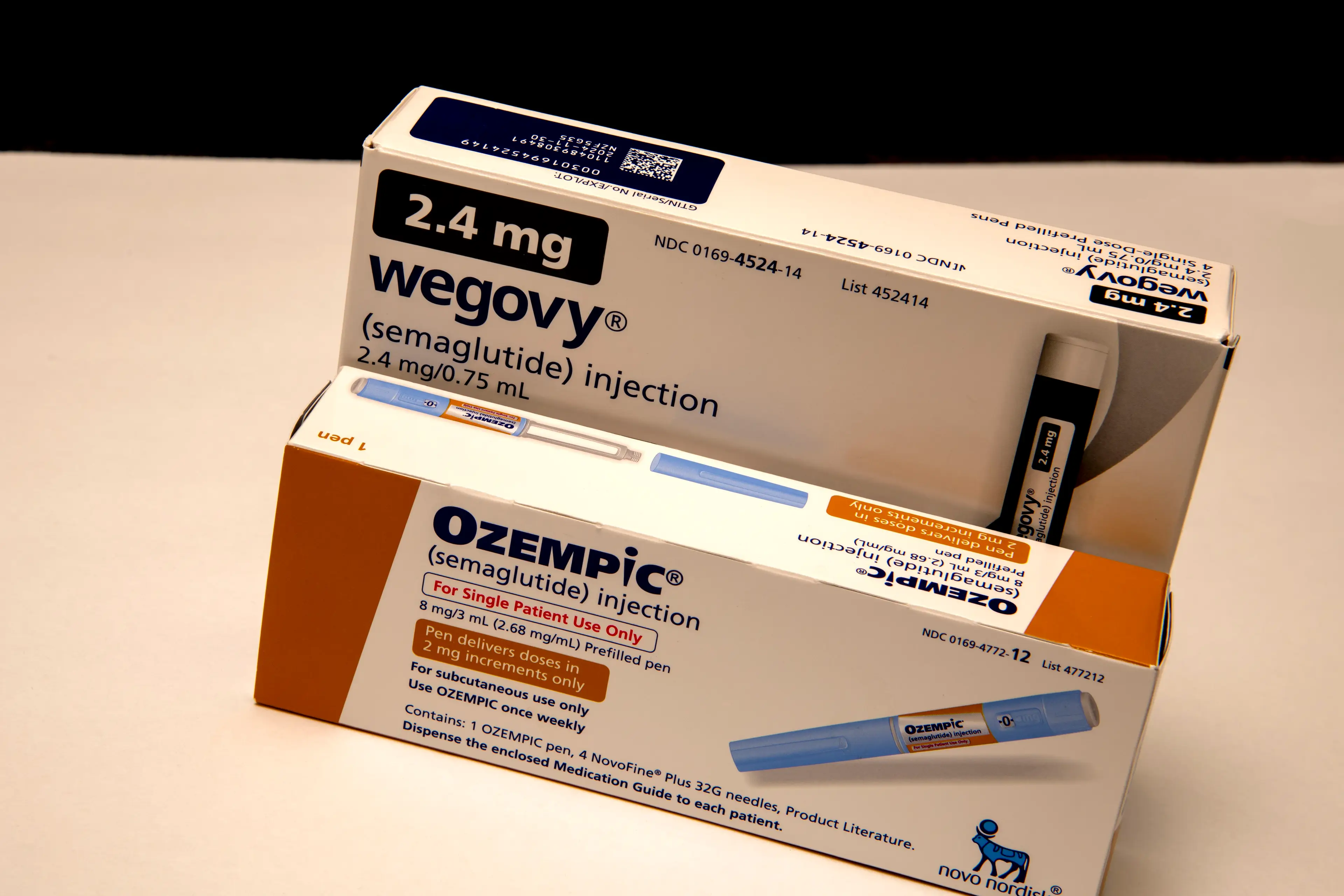
Move over Mounjaro and Ozempic, there's a new weight loss drug in town.
The two drugs might have dominated the slimming sphere of the medication market for the last few years, but this new monthly injection could give them both a run for their money.
California-based biopharmaceutical company Amgen have just conducted clinical trials on their new GLP-1 drug named MariTide - and the second phase of them have yielded very positive results.
Like its well-known competitors, this new drug works by mimicking two of the hormones inside the human body, glucose‐dependent insulinotropic polypeptide (GIP) and glucagon-like peptide-1 (GLP-1). These both help to stabilise the body's blood sugar levels and reduce our appetite, resulting in patients feeling fuller for longer after meals and therefore shedding weight.
Advert

The only difference with MariTide is that it also contains a monoclonal antibody, which is a lab-produced protein which imitates the body's natural antibodies. Because of this ingredient, the drug stays in the body for longer periods, meaning that people can administer the jab on a monthly basis rather than a weekly one.
Explaining the advantage this gives MariTide on the market, Dr Michelle Ponder told NBC News it will likely make the drug more appealing to consumers.
"It’s always just easier for patients to only have to take something once per month," the assistant professor of medicine at Duke University School of Medicine in North Carolina said. "A lot of patients we see in endocrinology are diabetes patients, and so they’d be taking multiple shots of insulin per day. And so, every last shot matters, even if it’s three less shots per month."
The findings of the recent studies into the effectiveness of MariTide were published in the New England Journal of Medicine on Monday (23 June) before being presented at the annual meeting of the American Diabetes Association.
Researchers observed the impact of the weight loss drug on almost 600 adults who were divided into two groups; people with Type 2 diabetes and obesity in one, and people with just obesity in the other. Over a period of 12 months, each participant was given one of three doses of MariTide or a placebo, which were to be taken once a month for the year.
The trial found that those with obesity alone were found to have lost up to 20 percent of their body weight on average after taking MariTide for 52 weeks. In comparison, those in the placebo group lost just 2.6 percent.
Furthermore, those with Type 2 diabetes and obesity lost up to 17 percent of their body weight on average after completing the year-long course of MariTide, whereas the participants who had the placebo only shifted 1.4 percent of theirs.
Although Amgen's new jab wasn't directly compared against market competitors such as Ozempic or Mounjaro, these stats suggest the new drug might be the most proficient when it comes to helping people shed the pounds.

According to Columbia University’s Department of Surgery, people on Ozempic and similar GLP-1 drugs typically lose anywhere from 15 to 20 percent of their body weight.
The researchers did note that like a lot of weight loss medications, gastrointestinal issues were 'common' among the participants who had been on MariTide.
But the good news kept on coming, as boffins discovered that the drug also did a good job at lowering A1c in the body - which is a key marker of our blood sugar - by up to 2.2 percent in those with Type 2 diabetes. In comparison, trials of Ozempic and Mounjaro documented A1c reductions of 1.5 to 2 percent.
Jay Bradner, M.D., executive vice president of Research and Development at Amgen, said of the study: "MariTide delivered strong efficacy, including sustained weight loss without a plateau in the 52-week Phase 2 study and meaningful improvements in cardiometabolic risk factors, representing a defining advance for the obesity field.
"These results, alongside the Phase 1 Pharmacokinetics Low Dose Initiation data, have shaped our Phase 3 MARITIME program.
"MariTide's monthly or less frequent dosing has the potential to improve adherence and long-term weight control, providing the opportunity to optimize health outcomes for people living with obesity, Type 2 diabetes and related conditions."